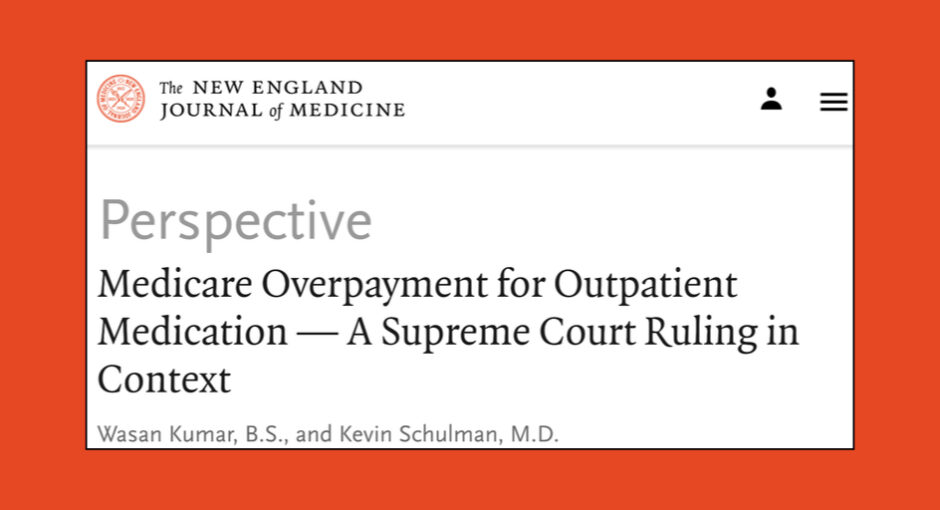Policymakers should consider disbanding the 340B program “given its negative reverberations for patients and markets,” a student and a professor at the Stanford University School of Medicine wrote in a commentary in the latest edition of the New England Journal of Medicine.
Groups that represent hospitals enrolled in 340B criticized the article (subscription required). They said abolishing the drug discount program would harm rather than help patients, communities, and health care at large.
Many pro and con articles about 340B have been published during the past decade in respected research and policy journals. This is one of the first—maybe the first—calling for 340B’s end. The U.S. House, now under Republican control, is expected to hold hearings on 340B this session.
The article by Wasan Kumar and Dr. Kevin Schulman is about last year’s U.S. Supreme Court ruling against significant Medicare Part B drug payment cuts for 340B hospitals. “Now that taxpayers will once again bear billions of dollars in payments related to the 340B program, it’s worth evaluating whether this provision still confers a meaningful benefit for the public,” they said. In addition to the medical school, Schulman is also affiliated with Stanford’s business school.
Citing past research published in JAMA, Health Affairs, NEJM, and other journals, Kumar and Schulman said, “Considering the broad and perverse effects [340B] has had on the organization and cost of health care, there seems to be little justification for maintaining it in its current form.” Hospital groups have challenged the research Kumar and Schulman cite, and have conducted or commissioned their own studies reaching contrary findings.
Congress should restore lower Part B drug reimbursement rates for 340B hospitals, Kumar and Schulman said. It should consider requiring 340B covered entities “to use 340B-related profits to address health disparities and improve care for underserved populations” and consider “imposing obligations to remedy the program’s financial harms, including addressing the toxic financial effects associated with cancer care by requiring 340B-covered providers to fully comply with hospital price-transparency requirements and restricting their ability to refer patients with cancer to debt collectors.”
“Absent these changes, we believe policymakers should consider disbanding the 340B program,” Kumar and Schulman said. “This approach may be the best path forward.”
Disbanding 340B as Kumar and Schulman suggest “would cause incalculable harm to hospitals and the patients and communities they serve,” American Hospital Association Deputy General Counsel Chad Golder said in a statement about the NEJM article.
“To the extent the article’s complaint with the 340B program is its growth, that is a function of a variety of factors, including changes Congress made in the Affordable Care Act, systemic shifts from inpatient to outpatient care, and the drug companies’ own decisions to raise the prices of their drugs,” Golder said. “The article also fails to address how this growth in the program has allowed providers to offer more comprehensive services to more patients, just as Congress intended.” Hospital group 340B Health told its members Wednesday it plans to send NEJM a letter to the editor in response to Kumar and Schulman’s article. It said the article “recycle[ed] outdated past studies, misstat[ed] Congress’s intent for 340B, and ignor[ed] how savings benefit patient care.”


